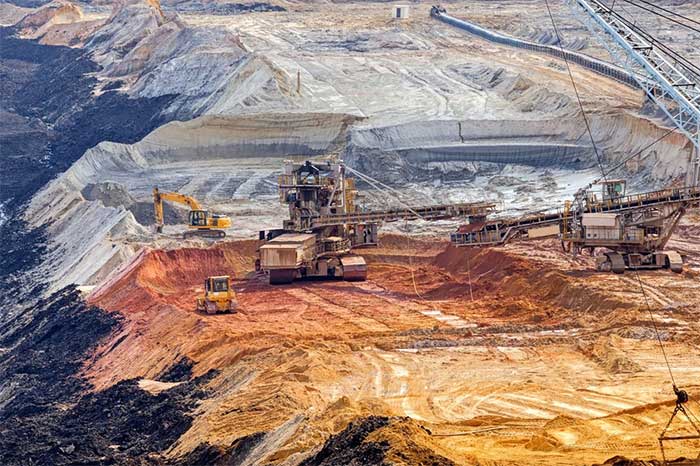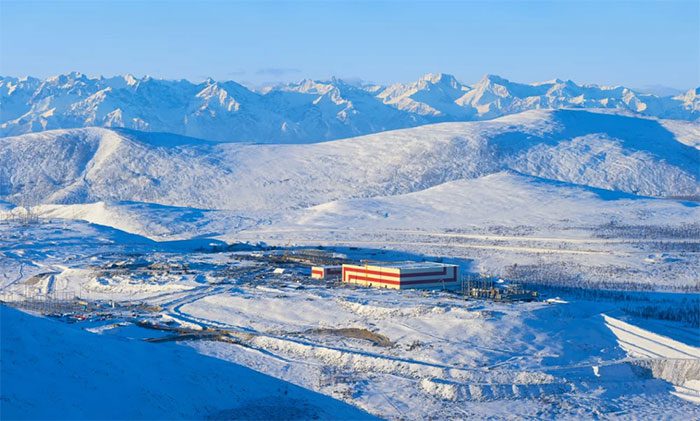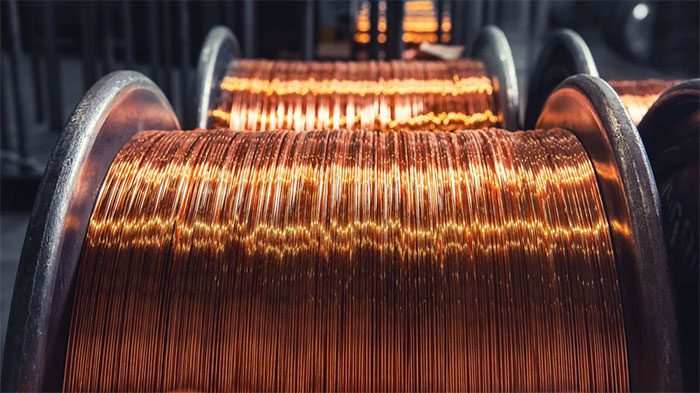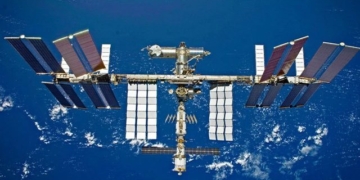Russia Begins Exploiting Its Largest “Future Metals” Mine.
Russia Initiates Mining at Its Largest Copper Mine
In early September 2023, Reuters reported that Russia has commenced mining and production of copper concentrate at its largest undeveloped copper mine – Udokan Mine.
This mine is located in Zabaykalsky Krai, situated between the Pacific Ocean to the east and Lake Baikal to the west. With an estimated reserve of about 26.7 million tons of copper, the Udokan Mine is the largest copper mine in Russia and among the largest undeveloped copper mines in the world, according to information from Udokancopper.ru.

Udokan Mine, Russia’s largest copper mine. (Photo: 2CAD).
The Udokan Mine was discovered by Soviet geologists during uranium exploration in the Zabaykalsky Krai region of Siberia in 1949, but the necessary work to develop the mine could not be carried out for over 70 years, partly due to the lack of technology to extract this unique ore.
Furthermore, the remote location of the mine presents significant challenges for development due to harsh climatic conditions, where temperatures can drop to -50 degrees Celsius.
In the 1970s, a student at the Moscow Mining Institute studied the idea of a “clean” nuclear explosion to mine the ore at Udokan, but that idea remained on paper.

The largest copper mine in Russia is located in a harsh cold region, where temperatures drop to -50 degrees Celsius. (Photo: Im-Mining.com).
As of 2023, under the supervision of Russian President Putin via video, Udokan Copper LLC announced it would implement copper production at the mine in two phases.
When the first phase of the metallurgical plant is launched in 2024, the company expects to process up to 15 million tons of ore annually, with an annual output of up to 135,000 tons of copper in the form of cathode copper and copper concentrate.
Udokan Copper LLC further stated that the processing plant at the Udokan mine will produce copper sulfide concentrate with a metal content of 40-45%.
The first phase of the copper mining and processing project at the Udokan mine is expected to cost around $2.8 billion.
By 2028, the company plans to construct the second phase of the mining and metallurgical complex, increasing annual capacity to 24–28 million tons of ore and up to 450,000 tons of copper for export, Reuters reports.
Strategic investor Udokan Copper LLC (formerly known as Baikal Mining Company) was established in 2008 to develop the Udokan copper mine in the Kalar district of the Trans-Baikal region of Russia.
Commenting on the harsh conditions in the area, Chief Engineer of the Udokan Technology Complex, Olga Bobina, stated that technological development and seismic analysis would ensure the project’s implementation – a capability that was unavailable during the Soviet era.
“We are currently waiting for the mine to become operational and are very excited about it,” said Ms. Olga Bobina.
The New Copper Age – The Metal of the Future
Udokancopper.ru states that copper is an indispensable metal driving revolutionary progress in human history. The Copper Age, an early metalworking period in Eurasia, gave rise to metallurgy.
Due to its high electrical and thermal conductivity, corrosion resistance, and durability, the demand for copper is increasing, especially in high-tech industries. Today, scientists refer to the modern development phase of the industry as the New Copper Age.
Research by S&P Global (USA) indicates that global copper demand will reach 50 million tons by 2035, as the world takes steps toward achieving zero emissions to reduce pollution. Because of its role in developing green energy, copper is also referred to as the metal of the future.

Copper plays a crucial role in green energy development. (Photo: PM Today).
Copper is increasingly important in the following fields:
Telecommunications: Copper has been and will continue to be a driving force behind revolutionary changes in telecommunications. From telephones to high-speed computer links, satellite technology, and wireless communication all require copper.
Technical Infrastructure: Copper is an essential metal in construction. It is the most important metal used in wire production, building materials, etc.
Copper has the highest electrical and thermal conductivity of all metals and is widely used in the energy sector.
Green and Low-Carbon Technology: Copper is more critical for renewable energy than for traditional power plants.
The intensity of copper usage in renewable energy is 4-6 times higher than in nuclear and coal power plants. Wind and solar power systems utilize more copper than any other renewable energy technologies.
Electric Vehicles: Passenger electric vehicle manufacturers will require over 3.7 million tons of copper annually by 2040.
Healthcare: Copper is a trace element essential for the normal development of higher animals and plants. It accelerates chemical processes within cells. Copper is also a natural antibacterial agent.
In 2008, the antimicrobial properties of copper surfaces were officially recognized by the United States. In 2009, the effectiveness of copper and its alloys in neutralizing the H1N1 influenza virus was demonstrated.


















































